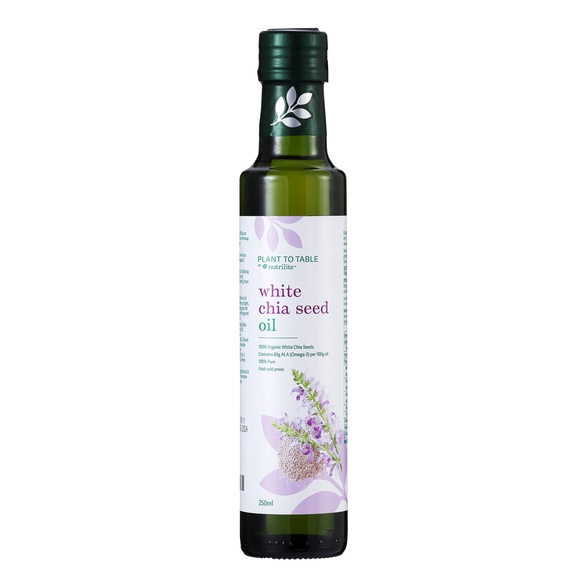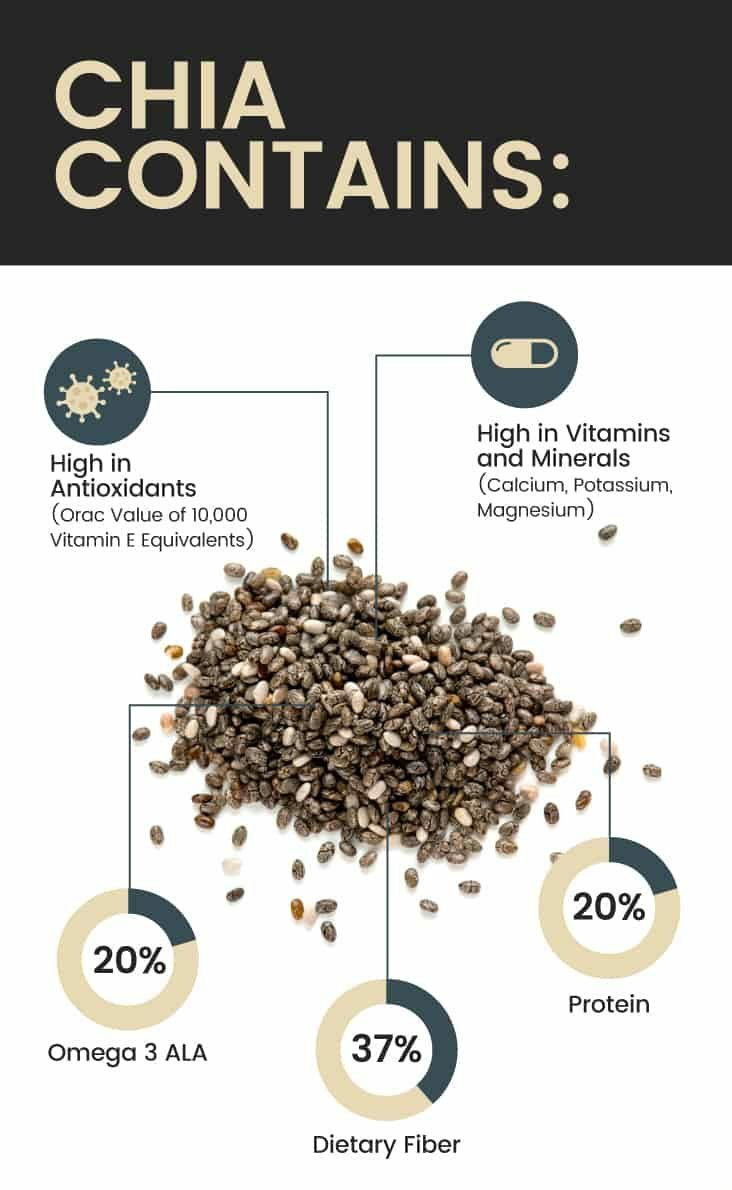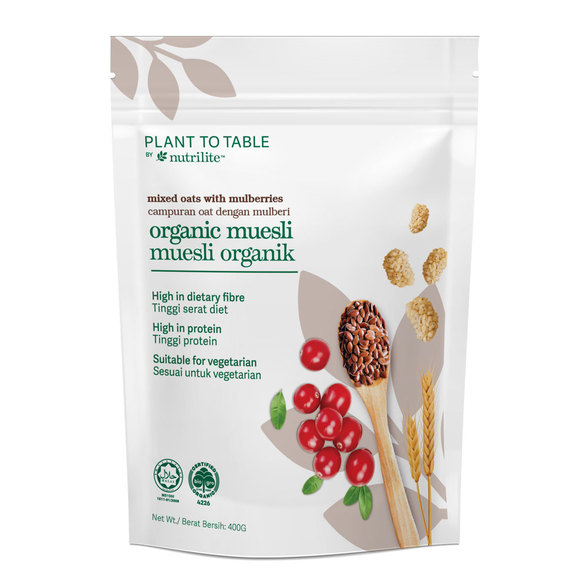What are Chia Seeds?: The Tiny Seed with a Mighty Punch
Let’s talk about chia seeds; what does chia seeds do to the body? These tiny seeds, originating from the Salvia Hispanica plant, pack a serious nutritional punch. Honestly, their impressive profile is hard to ignore. We’re talking about a powerhouse of nutrients crucial for overall health. It is good to know what does chia seeds do to the body.
Think of fiber, omega-3 fatty acids, protein, and antioxidants. These aren’t just buzzwords; they are the building blocks of a healthy body. Fiber keeps things moving, if you know what I mean, promoting digestive regularity. Omega-3s are essential fats that support brain health and reduce inflammation. Protein? It is vital for building and repairing tissues. And antioxidants? They are the bodyguards, protecting your cells from damage. Knowing what does chia seeds do to the body is understanding that it’s a holistic approach to wellness, where each nutrient plays a starring role.
But what exactly makes these nutrients so essential? Fiber isn’t just about regularity; it also helps regulate blood sugar levels and promotes heart health. Omega-3 fatty acids are critical for brain function, heart health, and reducing inflammation throughout the body. Protein is essential for building and repairing tissues, supporting muscle growth, and keeping you feeling full and satisfied. Antioxidants combat free radicals, protecting your cells from damage and reducing the risk of chronic diseases. You see, what does chia seeds do to the body is more than just a sum of its parts; it’s a synergistic effect that benefits your health in countless ways.
Digestive Harmony: Chia Seeds and Gut Health
Let’s talk about digestion. Specifically, what does chia seeds do to the body when it comes to your gut? Well, get ready for some good news! These tiny seeds are packed with fiber. And we all know fiber is the unsung hero of a happy digestive system. It helps keep things moving regularly, preventing constipation and keeping you feeling, well, lighter.
You know what’s really cool? When chia seeds meet water, they turn into this gel-like substance. It’s like magic! This gel isn’t just a party trick, it actually helps slow down digestion. That slow-down is great for keeping your system working smoothly and efficiently, so what does chia seeds do to the body overall?. Think of it as giving your gut a gentle, helping hand.
But the benefits don’t stop there. Chia seeds are also fantastic for your gut microbiome. That’s the community of good bacteria living in your intestines. A healthy microbiome is essential for overall health, affecting everything from your immune system to your mood. And a happy microbiome keeps you healthy so, what does chia seeds do to the body, really? Fiber from chia seeds acts as food for these good bacteria, helping them thrive and keeping your gut in tip-top shape. So, by adding chia seeds to your diet, you’re not just helping with regularity, you’re also feeding the good guys in your gut and promoting a healthier, happier you! Honestly, it’s a win-win!
Unlocking Your Inner Athlete: Chia Seeds for Energy and Performance
Need a boost that lasts? What does chia seeds do to the body when you’re looking for sustained energy? They might be your answer. These tiny seeds are a powerhouse of fiber, protein, and healthy fats, a combination that provides a slow-releasing energy source. You know, the kind that prevents those awful energy crashes we all dread. Think of it like this: quick energy sources are like kindling – they burn fast and hot but don’t last long. Chia seeds are more like a log on the fire, burning steadily and consistently.
For athletes, or even just those with active lifestyles, chia seeds can be a real game-changer. How so? Well, that sustained energy we talked about is crucial for endurance. Forget sugary drinks that give you a temporary high followed by a major slump. Chia seeds keep you going without the jitters or the crash. Consider stirring some into your oatmeal before a morning run, or add them to your smoothie post-workout to help with recovery. The protein aids in muscle repair, while the fiber keeps you feeling full and satisfied. Honestly, it’s a win-win.
Let me explain a little further: the magic lies in how chia seeds interact with water. They absorb it, forming a gel-like substance in your stomach. This slows down digestion, which in turn, prevents those rapid spikes in blood sugar that lead to energy crashes. Ever wonder what does chia seeds do to the body in terms of endurance? The sustained release of energy also enhances fat burning. Think of chia seeds as a natural, healthy fuel source that keeps you performing at your best, whether you’re hitting the gym, tackling a busy workday, or just trying to keep up with the kids. It’s a small seed with a big impact.
Heart Health Heroes: Chia Seeds and Cardiovascular Wellness
Chia seeds are often touted as heart-healthy powerhouses, and for good reason. Their impressive omega-3 fatty acid content plays a starring role in this cardiovascular benefit. Specifically, chia seeds are brimming with alpha-linolenic acid (ALA), a type of omega-3. Now, ALA isn’t the same as the EPA and DHA you find in fatty fish like salmon – those are the omega-3s that get all the glory in supplements. However, your body can convert some ALA to EPA and DHA, albeit not efficiently for everyone. What does chia seeds do to the body in this regard? It provides a readily available source of omega-3s, contributing to a healthier heart profile overall. Think of it like this: it’s not the same as directly getting EPA and DHA, but it’s a valuable step in the right direction towards heart health.
So, what exactly do these omega-3s do for your heart? They’re like tiny bodyguards, fighting inflammation throughout your system. Chronic inflammation is a major player in heart disease, contributing to things like plaque buildup in arteries. By reducing inflammation, chia seeds may help lower your risk of heart problems. Studies have shown promising results, hinting at chia seeds’ potential to help lower triglyceride levels—those pesky fats that can clog your arteries. Remember, though, correlation doesn’t equal causation. While the evidence is promising, it’s always best to speak with your doctor about your specific heart health needs before relying on chia seeds as your primary preventative measure. It’s all part of a holistic approach to well-being, you see.
Let’s not forget the fiber component. Chia seeds are also exceptional sources of fiber. High fiber intake is linked to better cholesterol levels, which benefits your cardiovascular system. What does chia seeds do to the body in the context of fiber? It keeps things moving and supports a healthy gut, contributing to improved overall health – it’s not just about the heart. A healthy gut microbiome may also influence inflammation levels, offering yet another route to cardiovascular wellness. In short, when you ask what does chia seeds do to the body concerning the heart, the answer is multifaceted: it helps to fight inflammation, reduces triglyceride levels, improves cholesterol, and aids gut health. It’s a tiny seed with a giant impact! And that’s something to consider when contemplating your diet.
Blood Sugar Balance: What does chia seeds do to the body for Glucose Levels?
Chia seeds possess a unique ability to influence blood sugar levels, primarily due to their high fiber content. What does chia seeds do to the body? Well, one crucial thing is that the fiber acts like a natural barrier, slowing down the absorption of sugar into the bloodstream. Think of it like this: instead of a sudden rush of glucose, you get a slow, steady release.
This gradual absorption is key. When sugar enters your system slowly, it prevents those dramatic spikes in blood glucose that can leave you feeling jittery and eventually lead to insulin resistance or type 2 diabetes. Individuals with diabetes often benefit from incorporating chia seeds into their diets, as this helps maintain more stable blood sugar levels throughout the day.
But how does it all work? You know what’s interesting? The glycemic index (GI) of chia seeds is incredibly low – practically negligible. The glycemic index is a measure of how quickly a food raises blood sugar levels. Foods with a high GI cause rapid spikes, while those with a low GI have a more gradual effect. Chia seeds fall firmly into the latter category. So, what does chia seeds do to the body? By adding chia seeds to meals, you’re essentially lowering the overall glycemic load, making it easier to manage blood sugar. It’s like adding a regulator to your fuel line, smoothing out the flow and preventing surges.
Weight Management Allies: How Chia Seeds Help You Feel Full
Can tiny seeds really help with weight management? Absolutely! Chia seeds can be a surprisingly effective addition to a weight management plan, and it all comes down to how they interact with your body. What does chia seeds do to the body when it comes to feeling full? It’s a combination of factors that work together to promote satiety and curb your appetite.
One of the key reasons chia seeds are helpful for weight management is their high fiber content. Fiber is like nature’s appetite suppressant. It slows down digestion, keeping you feeling satisfied for longer after a meal. But here’s the thing: chia seeds also have a unique ability to absorb a significant amount of water. When they come into contact with liquids, they form a gel-like substance. This gel expands in your stomach, taking up more space and further contributing to that feeling of fullness. Think of it as a natural way to trick your stomach into thinking you’ve eaten more than you actually have! What does chia seeds do to the body beyond just filling you up? The protein content also plays a role. Protein is known to be more satiating than carbohydrates or fats, helping to reduce overall calorie intake.
So, how can you incorporate chia seeds into your diet to help with weight management? There are tons of easy and delicious ways! You can sprinkle them on top of your yogurt or oatmeal for breakfast. Add them to smoothies for an extra boost of fiber and nutrients. You can even use them as a thickening agent in soups or sauces. For a truly satisfying snack, try making chia seed pudding by soaking the seeds in milk (dairy or non-dairy) overnight. Get creative and experiment with different recipes to find ways that you enjoy eating chia seeds regularly. By adding this little powerhouse to your meals, you might find it easier to control your calorie intake and reach your weight management goals. Remember that what does chia seeds do to the body is provide a helpful tool, but it works best when combined with a balanced diet and regular exercise.
Building Strong Bones: How Chia Seeds Help
You know what helps keep your skeleton strong? Minerals! Chia seeds are packed with them. Calcium, phosphorus, and magnesium are all hiding inside these tiny seeds. These minerals are critical for maintaining bone density. What does chia seeds do to the body? They can contribute to stronger bones over time, especially as part of a balanced diet. It’s like giving your bones a little extra support. Especially important for those worried about osteoporosis or potential fractures, adding chia seeds to your meals is a proactive step.
Think of it this way: Calcium is like the bricks in a building, while phosphorus and magnesium help to set those bricks in place. What does chia seeds do to the body? Well, together, these minerals keep your bones sturdy. It’s not just about calcium, it’s the whole team working together! Considering how many people struggle to get enough minerals, chia seeds become a convenient little boost. And it’s not hard to add them to your diet, which makes it even better. Now, how does chia compare to other foods?
Milk is often touted as a great source of calcium. And it is! But, what does chia seeds do to the body in comparison? A single serving of chia seeds offers a decent amount of calcium. Leafy greens, like spinach and kale, are also mineral-rich. However, chia seeds provide a concentrated dose. What does chia seeds do to the body? Adding them to your smoothie, yogurt, or even sprinkling them on your salad is an easy way to give your bones some love. So, consider chia seeds a simple way to support your skeletal health. What does chia seeds do to the body? They are a surprisingly good source of bone-building minerals.
Antioxidant Power: Protecting Cells from Damage with Chia Seeds
You know what? Chia seeds aren’t just about fiber and omega-3s; they’re also packed with antioxidants. These tiny seeds play a big role in protecting your cells. What does chia seeds do to the body when it comes to fighting off damage? Let’s get into it. Free radicals, those pesky unstable molecules, can wreak havoc on your cells, leading to inflammation and increasing the risk of chronic diseases.
Antioxidants act like bodyguards, neutralizing these free radicals and preventing them from causing harm. Think of it like this: if your cells are a castle, antioxidants are the knights defending it from invaders. Chia seeds contain specific antioxidants like quercetin, chlorogenic acid, and caffeic acid. These compounds have been linked to various health benefits, including reduced inflammation and a lower risk of heart disease. What does chia seeds do to the body’s cells at a basic level? They shield them from oxidation, like rust-proofing a car.
So, how do you incorporate these antioxidant powerhouses into your diet? It’s pretty simple. Sprinkle them on your yogurt, add them to your smoothies, or even bake them into your muffins. Honestly, it’s an easy way to give your body an extra layer of protection. Considering the constant barrage of environmental toxins and stressors we face daily, including chia seeds in your diet is a small, yet significant, step toward better health. Remember, it’s not just about treating symptoms; it’s about preventing damage from the get-go.




